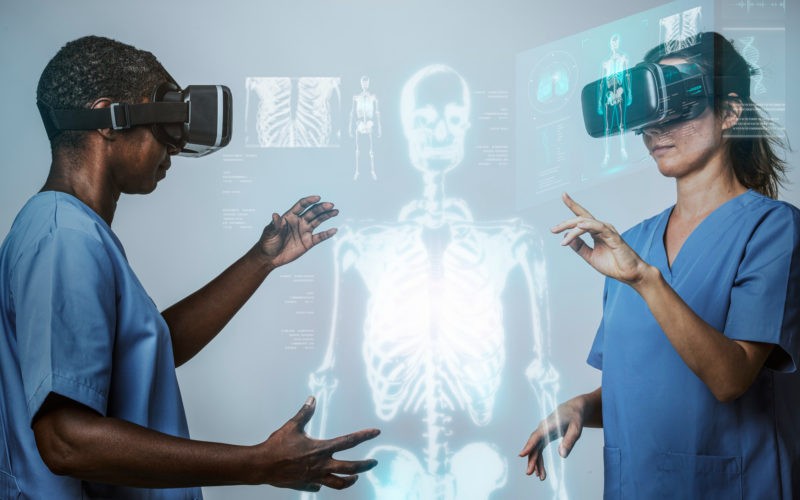In today’s world, where health and technology converge, the field of nutrition is evolving rapidly. Personalized diets, tailored to individual needs, are revolutionizing how we view and manage our dietary habits. This shift toward a more personalized approach to nutrition is not just a fleeting trend, but a glimpse into a future where our meals are meticulously aligned with our unique health profiles, potentially leading to improved well-being and disease prevention.
The Rise of Personalized Nutrition
Personalized nutrition marks a departure from conventional dietary advice, emphasizing the unique nutritional needs of each individual. This approach recognizes that factors like genetics, lifestyle, and health conditions vary significantly among individuals, necessitating a more customized approach to diet.
Technology: The Force Behind Personalized Diets
Technological advancements in AI and data analysis are key to developing personalized diets. These technologies allow for the analysis of complex personal health data, paving the way for tailored nutritional recommendations.
AI-Powered Health Apps
These apps use artificial intelligence to analyze user-inputted data such as dietary habits, exercise routines, and health goals. They can provide personalized meal plans and advice, adapting over time as they learn more about the user’s preferences and body responses.
Genetic Testing for Nutritional Guidance
Genetic testing services analyze DNA samples to provide insights into how an individual’s body might react to different foods or nutrients. This data helps create highly personalized diet plans for genetic predispositions, such as lactose intolerance.
Wearable Technology for Real-Time Health Monitoring
Devices like smartwatches collect data on physical activity, heart rate, sleep patterns, and more. This continuous stream of health data can be integrated into AI systems to offer dynamic dietary suggestions, adjusting for day-to-day changes in the user’s health and activity levels.
Microbiome Analysis: Tailoring Diets for Gut Health
The human microbiome plays a vital role in overall health. Personalized diets often consider the unique composition of an individual’s microbiome, ensuring that the diet supports optimal gut health and general well-being. Personalized nutrition moves beyond conventional dietary advice, addressing the unique needs of each individual. Gut health plays a crucial role in influencing your immune system, mood, hormones, weight, and more. Probiotics can be beneficial for everyone, but they are often especially recommended for women due to specific health concerns related to the female body. Including probiotics for women in your wellness plan can be a valuable step toward overall well-being.
IV Therapy Clinic: A Complementary Approach
In the realm of personalized health, IV therapy clinics are emerging as a complementary approach. These clinics offer tailor-made IV treatments that deliver nutrients directly into the bloodstream, offering a quick and efficient way to address specific nutritional deficiencies.
Nutrigenomics: The Science of Food and Genes
Nutrigenomics explores the interaction between food and genes. This field is fundamental, offering insights into how different foods affect our genetic expression and overall health.
Customized Diets for Disease Prevention
Personalized diets have immense potential in disease prevention. By aligning dietary recommendations with individual health risks and genetic predispositions, these diets can significantly prevent chronic diseases.
Accessibility and Affordability: Key Challenges
Despite their benefits, the accessibility and affordability of personalized diets and related services like genetic testing remain challenging for many, potentially limiting the widespread adoption of these customized nutritional plans.
The Influence on Public Health Policies
The rise of personalized nutrition is gradually influencing public health policies. There’s a growing realization that dietary guidelines must be more flexible and tailored to individual needs.
Education and Awareness
Educating consumers and health professionals about the benefits and methodologies of personalized diets is crucial. Increased awareness and knowledge can lead to better adoption and implementation of these dietary strategies.
Finding Healthy Options
As personalized diets gain popularity, the demand for easily accessible, healthy food options increases. Searches like “healthy shakes near me” reflect a growing interest in finding convenient, nutritious food choices that align with personalized dietary recommendations.
Conclusion
The future of nutrition is being shaped by the concept of personalized diets, offering a more effective and tailored approach to health and wellness. These diets consider each individual’s unique genetic, lifestyle, and health aspects, promising improved health outcomes. While challenges in accessibility and cost exist, the integration of complementary approaches like IV clinics and the increasing demand for healthy, convenient eatery options indicate a positive trend towards a more health-conscious society. As we move forward, the potential of personalized nutrition to revolutionize our dietary habits and overall health is vast and exciting.












